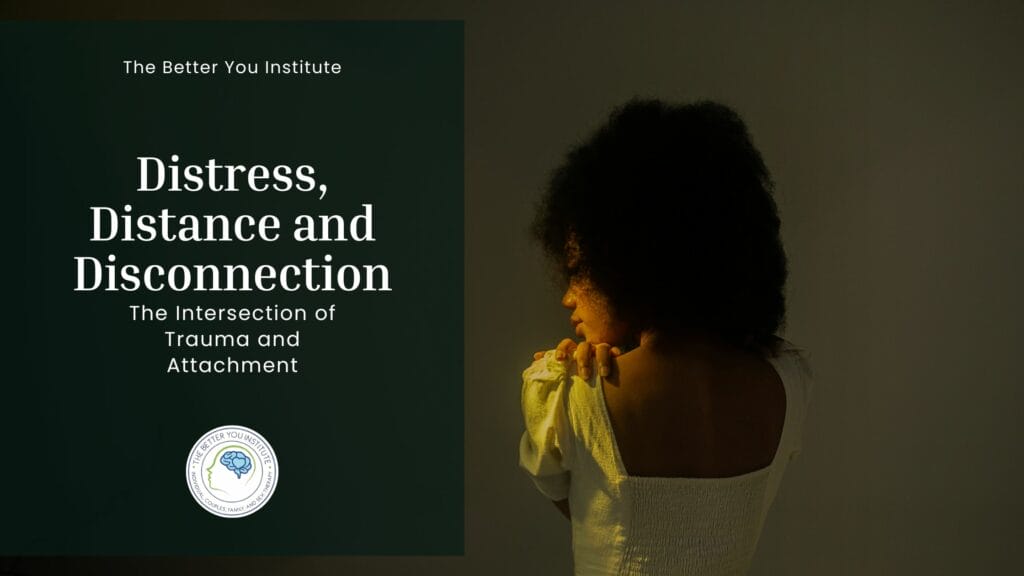Extremely empathetic individuals (empaths) and excessively self-focused people (narcissists), essentially polar opposites, tend to attract one another. The results can be disastrous for the empath. Given the natural tendencies of each, the empath will give, and the narcissist will take, until there’s nothing left to give. A healthy relationship should have a fairly consistent, equal give and take. Empaths can protect themselves by having firm boundaries, managing their energy, and getting support. In cases where your loved one has Narcissistic Personality Disorder as opposed to just narcissistic traits, it might be necessary to leave the relationship for your own mental health.
Table of Contents
The Difference Between Empaths and Narcissists
Empaths are people who are sensitive to the energy and feelings of other people. For example, if someone who is an empath listens to a story of something traumatic, they may more easily experience the emotions of the person telling the story and absorb these energies, sometimes leading to feeling drained. Someone narcissistic is nearly the opposite. They are not sensitive to someone else’s experience. Narcissists tend to be focused on how others’ stories can beef up their self-esteem. Where an empath might state something like, “that experience must have been so hard for you. I can imagine you’re still struggling,” a narcissist might respond with, “I went through something similar but much more intense and I got through it just fine.”
Empaths and narcissists often end up in relationships together. Some people may not have the bandwidth to navigate a person’s behavior that doesn’t involve empathy like a narcissist’s behaviors might be. However, an empath may excuse insensitive behavior by over-empathizing with the low empathy person’s experience. For example, the empath can understand through a lens of empathy that the narcissist had a hard childhood, and that’s why they act this way. An empath is often willing to meet the narcissist’s needs over their own based on this connection with the narcissist’s difficult childhood. While understanding and compassion are an empath’s strengths, a narcissist is good at picking up on others’ insecurities and using them to feel better about themselves.
A narcissist will toy with an empath by using their insecurities against them and then turn around and use those same insecurities to get closer to the empath again. For example, a narcissist who has figured out an empath’s insecurity of being perceived as mean might say something like “how could you have done that to me, you knew it would hurt me, and you did it anyway” resulting in the empath begging for their forgiveness. Later, the narcissist will turn around and say something like “You really are the nicest person, you go out of your way for me all the time.” This last statement has two purposes: one, to rope the empath back in after making them second guess how the narcissist perceived them, and two, to set them up in the future to ask the empath for a favor and for the empath to jump on the opportunity to be perceived as nice. Some narcissists keep empaths holding on by giving breadcrumbs of fiend progress (see below for description) and love bombing. Narcissists don’t always use this behavior to be nefarious. Still, they lack the skill to take ownership of their less than ideal behaviors or to have insight into how their actions are affecting others.
What a Narcissist and Empath Relationship Look Like:
Will has been with Chris for about seven years, and they live together. Will has a high-paying job as a CEO of a well-established company, and Chris works as a music instructor and would be struggling financially without Will taking care of the majority of the financial obligations between the two of them. Will knows he has this power over Chris and will love bomb him whenever Chris confronts him about his infidelities and cruel behavior. He will take Chris out to expensive dinners, take him on shopping sprees, pay off his debts, etc.
Will has Narcissistic Personality Disorder and is particularly callous. While some narcissists may engage in these processes without awareness, some do have awareness and have impaired empathy to the point of believing their needs matter more than others. On the other hand, Chris is an empath. He has the strength to be understanding and forgiving but these strengths can be a double edged sword. It’s hard to imagine someone wanting to take advantage of Chris’s attributes. Chris grew up in an abusive household and has seen the addictive cycle of abuse. Because patterns repeat themselves, Chris is hardwired to seek an abusive dynamic since it’s what was initially presented to him as the norm for relationships. The cycle of repeating patterns can be addictive because the participants keep chasing the high of reconciliation and the comfort of familiarity.
Chris caught Will reaching out to multiple men to meet up. Will explained that he was “too scared to commit” and this was just due to him “fearing being hurt.” Chris, being the empath in the relationship, forgave Will due to empathizing with Will’s proclamations of being too scared to love. What Chris doesn’t know is that Will feels no remorse for his behavior. He knows what to say to inspire empathy in Chris. This, combined with the comfort and familiarity of the highs and lows of a toxic relationship that Chris experienced growing up and now has in his relationship with Will, make it very difficult for Chris to leave. The repeating of patterns and seeking reconciliation is a common addiction for people in toxic relationships in general.
Will has no intention of changing his behavior. He feels entitled to have his cake and eat it too, so to speak. He craves narcissistic supply (ego boosting people) to regulate his self-esteem. The more people Will has to admire him, the better he feels about himself.
Will’s trajectory: love bomb Chris to a place of security within the relationship and then hide his cheating better.
Chris’s trajectory: aide Will in feeling secure enough to love and be in a committed relationship.
Common Tactics Utilized by People with Narcissism
Fiend Progress
Fiend progress is when a narcissist pretends to be working on themselves and may even go to therapy. However, this is just to keep the empath remaining hopeful that they will change their behavior. An empath often has a hard time giving up on someone and wants to believe that their compassion will heal the narcissistic individual. Often when an empath confronts a narcissist with their bad behavior, they can be met with rage and accusations that the empath is not recognizing all the effort they are putting in. Therapy can be used as proof that they are taking the empath seriously. However, pay attention to how many sessions the narcissist actually keeps, how they talk about the process of therapy (“my therapist said xx but I already knew that” vs. “I always have something new to reflect on after my therapy sessions”), and if true change is occurring.
Gaslighting
Narcissists are eloquent with how they speak and what they choose to share and not share. Overtime, their chosen words and messages disrupt your trust in yourself. They may misdirect you or say you’re overreacting to something that threatens their self-esteem. They are good at manipulating others into thinking you’re the problem. Unfortunately, this can even happen in individual and couple’s therapy. A fooled couples therapist may unknowingly collude with a narcissist in gaslighting you. Gaslighting is a manipulative tactic narcissists use to make you question your reality so that they can assert theirs.
Love bombing
Another manipulative tactic is love bombing, which is where the Narcissist will replace actually working on the relationship with excessive gifts and compliments. The compliments and gifts are more “proof” they have of treating you “well.”
Characteristics of an Empath/Narcissist Dynamic
- Narcissist’s disregard for their partner’s feelings or needs
- Manipulation of the empath
- Empath loss of identity
- Empath feeling constantly anxious
- Narcissist requiring immediate commitment and affirmations of I love you early on in the relationship
- Circular arguments that have no resolution
- Testing of the empath’s boundaries
- Empath giving excessive excuses/rationalities for their partner’s behavior
- Empath hiding instances of abuse from friends
- Narcissist playing the victim and projecting bad behavior
- Empath internalizing blame
Questions for an Empath to Ask Themselves:
- Is there an imbalance of power?
- Do I feel a sense of urgency to help my partner?
- Do I feel a sense of urgency to get my partner to see things differently or treat people nicer?
- Are my friends and family saying one thing about my partner that I have to excuse or defend?
- Do I often make excuses for their poor behavior?
- Do I feel put down but can’t pinpoint examples?
- Have I been love bombed?
- How long am I willing to put up with bad behavior with no progress?
- What is my general quality of life now in this relationship versus before when I was not in this relationship? Has my quality of life changed in a way that I am happy with? (Example, I have my debts paid off but I’m depressed and anxious all the time.)
Questions for a Narcissist to ask Themselves
- What is motivating my behavior?
- Would I want my partner to do to me what I am doing to them?
- How would I feel if they engaged in my same behaviors?
- Is my bad behavior worth losing someone I care about?
- Do I relate to the narcissist in the example above?
- What is the point of a relationship?
Establishing a Healthy Dynamic
If you identify with the empath in the examples from above, go at your pace not your partner’s. If you feel anxiety or pressure to move quicker than you want to, slow down. Trust and love is built over time. The feelings you have in the beginning are passion but not complete love. According to Robert Sternberg’s Triangular Theory of Love, complete love includes commitment and intimacy along with passion. You never need to give more than you are given in a relationship. In general, there should be a balance of give and take. To gauge and maintain a healthy give and take in a relationship, try the exercises below.
Exercise:
Imagine your needs and your partner’s needs on either ends of a continuum. Your concern with your needs and the other person’s needs should be somewhere in the middle of this continuum. Try to pinpoint on this continuum where you are in terms of whose needs you are currently focusing on.
Your needs <————————————-*—————————————–>Their needs
Your focus may vary at times and not always be even. You may lean toward your own needs or the other persons at various times. However, if your concern is 75% to 100% focused on the other person’s needs over your own needs for an extended period of time, this can feel lopsided and lead to unhealthy dynamics in a relationship.
Protect Your Energy
As an empath, you may be more at risk for having your energy drained by the toxicity of the empath/narcissist dynamic. There are several ways in which you can reserve your energy and be mindful of when you exert it. Here are a few exercises to protect your energy:
Meditation:
Imagine a white light in the center of your chest. This white light represents protection from negative energy. Imagine this white light getting bigger until it is a halo of white light surrounding you, protecting you. Try to hold this image of a protective white light surrounding you for 5 minutes. Repeat whenever needed.
Demand a Fair Fight:
Don’t give in to matching unhealthy behavior. This only gives them ammo; proof that you are the bad one. Practice fair fighting rules (see below). If they refuse to engage in a fair way, walk away.
Fair Fighting Rules:
- Ask yourself why you are upset
- One topic at a time
- Use compassionate, understanding language instead of degrading language: “I can see that this is really hard for you…”
- Use “I” statements: “I feel degraded when I hear you saying…” “From my perspective, I think you’re being unfair about…, which leaves me feeling voiceless.”
- Take turns speaking
- Communicate the need for a pause in the discussion. Let the other person know how long of a pause you need, and then follow up when the length of time is done instead of just stonewalling: “I am feeling really activated in this discussion and can feel myself shutting down. Can we take a 30 minute break for me to reset myself?”
- Stay calm in your tone of voice without raising it or mumbling.
- Take a time out if the argument is too heated
- Attempt to compromise
- Repeat back verbatim (the best you can) to the other person, without inputting your opinion/thoughts, what you’re hearing so they have the ability to correct something that they didn’t know came across in a certain way
If you find that you are the only one making a genuine effort to fight fairly, this is something to take careful note of.
Establish Boundaries
A narcissist tends to push other people’s boundaries and limits to serve themselves, which is why it’s so important to hold strong on your boundaries to protect your energy. When you feel your physical or emotional space invaded, your emotions becoming escalated, or your energy drains, these are indicators to set boundaries or remind your partner of the boundaries already set.
Boundaries should be something that you are in control of, not something you need from the other person. Below are examples of boundaries you may need to set in your relationship with a narcissist, and examples of what is not a boundary.
| Healthy boundary you are in control of | Boundary that relies on the other person and is not in your control |
| I will not own my partner’s emotions | Don’t put your emotions onto me |
| I will leave the situation if I do not agree with the behaviors I’m witnessing | I need you to be nice to my family |
| I won’t accept excessive gifts or gestures after we get into a fight | Do not buy me gifts as a makeup to our fights |
| I am not going to stay in a relationship or conversation where I constantly feel put down | Do not critique or hold me in contempt |
Lean on your supports:
Your friends and family care about you and want you to be safe. If you have concerns or start to question things in your relationship, try not to isolate yourself and share these concerns with loved ones. Practice leaning on a safe person for support. If more than one friend or family member is concerned about your relationship, take their observations into strong consideration.
Your loved ones may have insights that your empathy blinds you to. They may see something as abusive where you see it as a response to something deeper your partner is going through. If the person you are in a relationship with has severe Narcissistic Personality Disorder (NPD), is being abusive, and has not shown any genuine interest in changing despite multiple chances, it might be necessary to leave. If you decide to leave someone like this, you may need to go no contact. They know how to lure you back in and any amount of contact puts you at risk for being drawn back in.
Leave if You Need to
In cases where a person has moderate – severe Narcissistic Personality Disorder, change would be unlikely without intensive, frequent therapy that they are fully committed to. Given the nature of narcissistic personality disorder, this commitment is unlikely. You do not have to endure abuse for any reason. Most times, no contact is the best way to move on and heal from narcissistic abuse. If your partner knows how to manipulate you, they will always need another explanation or to see you one last time. Say your peace and block. If you have already given them an explanation and an understanding that you are leaving, you don’t owe them anything else.
Psychotherapy
Therapy can be helpful in recognizing an imbalance in a relationship and giving unbiased feedback to situations. Therapists can aid in maintaining boundaries and additional exercises to care for yourself, like self-talk and self-compassion, and have a healthy relationship. They can also help you recognize the warning signs of someone who might mistreat you.
It often takes a long time to fully heal from narcissistic abuse. It’s important to give yourself that time. If you and your partner have gotten to a healthier place in your relationship, you may still need time to heal from the past experiences the two of you had. If you decide that the relationship is irreparable and your partner won’t change, you may choose to break up. It’s a good idea to refrain from dating until you’ve established equilibrium in yourself and life. By doing so, you will be ready to pick a partner who is an equal and has the ability to contribute equally to the health of the relationship.
Use the therapeutic space to analyze what left you vulnerable to this person coming into your life. What were your family dynamics growing up? Sometimes empaths develop from having a narcissistic parent, and needing to be attuned to their parent’s moods to survive. They may have learned to sacrifice their needs and feelings in favor of others.
How to Measure Equilibrium in your Life
This life wheel exercise can be helpful in determining if you are in equilibrium. Here’s what to do:
- Draw a circle
- Draw 10 radiating lines from the center of the circle
- Slice these lines into 6 sections
- Label each section: Family, friends, fun, partnership/dating/romance (whatever most applies to you), career, and health
- Next rate each subject on a scale from 1 to 10 (10 is doing the absolute best) how well you are doing in that area of your life.
- Then color in that number of rings from the center of that section
- Now look at your completed circle
- Which areas need help?
- How can you shift your energy/focus to the areas that need help so that you are treating all your needs more equally.
- If you are/were in a relationship with a narcissist you may notice that you score low in all areas of the life wheel.
- If you are in a relationship with a narcissist and aren’t feeling good, focus on another area in your life to pick yourself back up and not leave you too reliant on your relationship
In Conclusion, Know Your Worth
You never need to rescue someone at your own expense. As an empath, you have a lot of beautiful strengths but you may also be more vulnerable to having difficulty setting boundaries and sacrificing yourself to save someone else. Try to practice being your own advocate and protector. If you find when you advocate and protect yourself it brings out rage or abuse in your partner, it may be time to consider an escape plan. As an empath you may be prone to not wanting to give up on someone because everyone should be able to heal from compassion but this is simply not true. Some people will eat up your compassion and you, and never change. I saw this quote on social media, so if you know the author leave it in the comments: “Waiting for someone to act correctly is a disrespect to yourself. You’re compromising your worth just because someone can’t fully afford it”.
Meet The Author:

Courtney Miller, LPC
Licensed Professional Counselor
Courtney Miller, LPC, is a Licensed Professional Counselor with a warm, empathetic approach, specializing in children, teens, and young adults, including the LGBTQ+ community. Utilizing her artistic background, she employs creative and experiential methods in therapy. Courtney focuses on overcoming mood disorders, trauma, and relational dynamics, particularly addressing C-PTSD and narcissistic wounds. She emphasizes understanding patterns and enhancing existing strengths, offering tools like mindfulness and thought reframing. With a BA in Psychology and Fine Art from SUNY New Paltz and an MA in Mental Health Counseling from CUNY Brooklyn, she has experience in family dynamics and LGBTQ+ youth support. Based in Philadelphia, Courtney enjoys crafting, travel, biking, and spending time with loved ones.
Learn more about Courtney Miller ⇒







